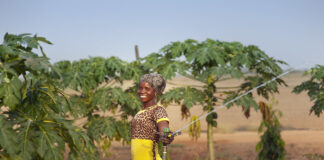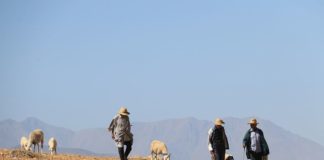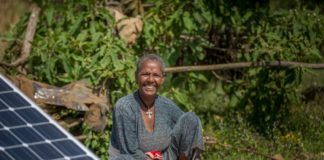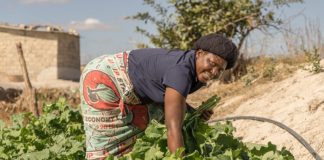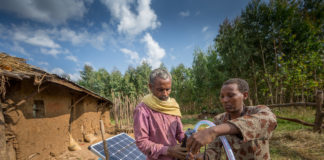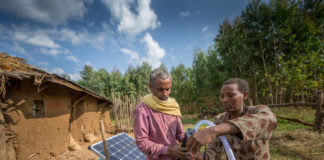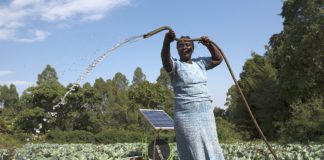Home 2023
Archives
IWMI-led MENAdrought project issues final report
The MENAdrought project is a partnership between IWMI, Nebraska Drought Mitigation Centre, Daugherty Water for Food Global Institute, John Hopkins University, and the NASA Goddard Space Flight Center, supported by USAID.
IWMI part of global, five-year program to build sustainable food systems
IWMI will implement the Innovation Lab for Irrigation & Mechanization Systems, funded by USAID and led by University of Nebraska.
Drovers: Water for Food Global Conference Draws International Audience to Address...
Fauchon was one of more than 120 global speakers and 400 participants who gathered at the tenth Water for Food Global Conference to discuss innovative ways to improve water and food security by increasing farmers’ resiliency to a changing landscape.
Key takeaways from IWMI’s participation at the 9th World Water Forum
Roundup blog of IWMI activities, events and sessions at the World Water Forum in Dakar, Senegal
Morocco’s decision to publish drought maps could benefit the whole MENA...
The hope is that the technology will be routinely used across MENA in drought management, helping to strengthen resilience to climate change, promote accountability and transparency, and inform scarcity management in arid watersheds.
Experts: new thinking and approaches needed to scale up farmer-led irrigation
Scaling up farmer-led irrigation will require not only holistic approaches but also strong partnerships between implementing partners.
Debating how to nurture sustainable and inclusive farmer-led irrigation
Governments and development organizations realize that supporting farmer-led irrigation can enhance smallholders’ resilience to climate change and promote healthy food systems.
Experts unite to find the best ways to scale up farmer-led...
It makes sense to encourage farmer-led irrigation, to capitalize on benefits, but how can we do so inclusively and sustainably?
How to accelerate and scale inclusive water access in Ethiopia
A photo story to highlight farmer-led irrigation in Ethiopia.



